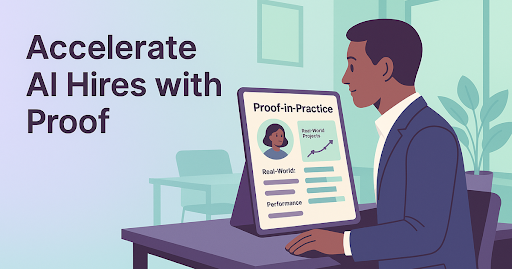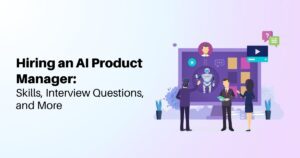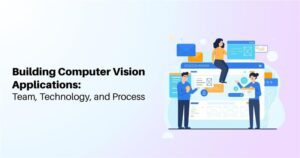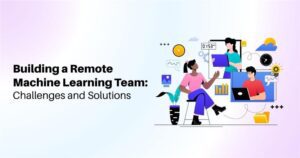
Many business leaders operate under the assumption that a comprehensive list of AI-related keywords on a resume, or even a deep technical interview, fully equates to a candidate’s readiness to deliver complex AI projects. This fundamental disconnect creates immense, costly friction in hiring: endless vetting cycles, sunk costs from mis-hires, and frustrating project delays. The hidden consequence of this flawed approach is not just financial; it translates directly into missed product deadlines, a lost competitive edge, and engineering teams burning out trying to compensate for inadequate talent. Imagine a future where AI talent acquisition is systematic, reliable, and predictable, transforming a significant operational hurdle into a strategic advantage. Companies that utilize pre-vetted talent pools reduce time-to-hire by 40% (AI Talent Solutions Review, 2022). This article will provide a new framework for evaluating AI expertise, enabling you to hire with confidence and accelerate your AI initiatives.
Deconstructing the Illusion of AI Expertise
The core challenge in AI talent acquisition isn’t a scarcity of individuals claiming AI proficiency; it’s the pervasive difficulty in verifying true, on-the-ground capability. The market is saturated with “paper experts” – candidates whose profiles boast certifications and academic projects that don’t translate into tangible business value. CTOs and engineering managers frequently encounter portfolios that are technically sound on paper but reveal a lack of real-world problem-solving skills or commercial understanding upon closer inspection. This discrepancy leads to prolonged interview processes and the significant risk of hiring individuals who cannot deliver.
The “Credential Trap”
Many hiring processes inadvertently fall into the “credential trap,” prioritizing formal qualifications over demonstrated impact. While certifications and degrees are foundational, they offer little insight into how an individual applies that knowledge to solve complex business problems under real-world constraints. This focus often overlooks the critical nuances of project management, collaborative coding, and the ability to adapt AI models to evolving requirements.
The Cost of Unverified Claims
When a candidate’s presented skills don’t match their performance, the impact is immediate and severe. Resources are diverted, timelines extend, and morale suffers. The average cost of a bad hire in tech is estimated to be 30% of the employee’s first-year salary (U.S. Department of Labor, 2020), a figure that doesn’t even account for lost opportunity costs. For an AI initiative, this means missing critical market windows or failing to achieve strategic objectives. These hidden costs underscore the urgent need for a more robust evaluation methodology.
The “Proof-in-Practice” Portfolio Framework
Moving beyond superficial assessments requires a shift in how we view an AI freelancer portfolio. It’s not merely a showcase of past work; it’s a dynamic demonstration of an individual’s problem-solving acumen, technical proficiency, and practical application of AI concepts. This framework emphasizes verifiable impact and transparent methodologies, designed to give decision-makers true confidence in their hiring choices.
Moving Beyond Resumes
Traditional resumes, while useful for outlining career trajectories, rarely provide the depth needed to assess an AI expert. They often lack the context of problem statements, iterative solutions, and actual project outcomes. A true AI freelancer portfolio should tell a story, detailing the journey from problem identification to a deployed solution, highlighting the challenges faced and the lessons learned. It’s about demonstrating how an expert thinks and executes.
The Core Tenets of Demonstrable Value
An effective ai portfolio is built on transparency, verifiability, and measurable impact. It allows hiring teams to delve into the specifics of an expert’s work, understanding their approach to data, their model selection, and their deployment strategies. This shifts the hiring focus from what a candidate claims they can do, to what they have demonstrably achieved, providing concrete evidence of their ability to showcase AI skills that align with business goals.
10 Pillars of a High-Impact AI Freelancer Portfolio
For any business decision-maker seeking to hire an AI expert, these are the indispensable elements that transform a generic resume into a compelling AI freelancer portfolio, offering genuine insight into a candidate’s capabilities. These items demonstrate true expertise and mitigate hiring risks.
- Real-world Project Case Studies: This goes beyond simple descriptions. Present detailed narratives of ai projects for portfolio that tackled actual business problems, clearly outlining the initial challenge, the proposed AI solution, the methodology, and the measurable business outcomes.
- Code Repository (GitHub/GitLab): A well-maintained public code repository is non-negotiable. It demonstrates clean code, adherence to coding standards, version control proficiency, and collaborative skills. It’s crucial for understanding their technical rigor.
- Technical Documentation & Readmes: High-quality documentation for projects showcases an expert’s ability to communicate complex ideas clearly. Well-written Readmes, API documentation, and architecture diagrams provide insight into their thought process and attention to detail.
- Performance Metrics & Impact: Quantifiable results are paramount. The portfolio must include specific metrics (e.g., accuracy, precision, recall, latency, cost savings, revenue uplift) that demonstrate the effectiveness and business impact of their AI solutions.
- Domain-Specific Expertise: Evidence of understanding relevant industries or problem spaces is critical. This could be through projects in healthcare, finance, or manufacturing, demonstrating an ability to apply AI within specific business contexts.
- Continuous Learning & Certifications: Beyond foundational degrees, relevant ai certifications from reputable institutions (e.g., AWS, Google Cloud, deeplearning.ai) show a commitment to staying current with rapidly evolving AI technologies.
- Community Contributions & Thought Leadership: Participation in open-source projects, technical blogs, speaking engagements, or active involvement in AI forums highlight an expert’s passion and ability to contribute to the broader AI ecosystem. These ai community stories provide valuable context.
- Client Testimonials & References: Direct feedback from past clients or collaborators provides social proof of reliability, professionalism, and the ability to deliver on commitments. These are critical for building trust.
- Problem-Solving Narratives: Showcase specific instances where an expert overcame significant technical or conceptual hurdles in an AI project. These ai project stories reveal their resilience and analytical prowess under pressure.
- Ethical AI Considerations: Demonstrating an awareness of bias, fairness, transparency, and privacy in AI model development is increasingly vital. This shows a commitment to responsible AI practices.
Accelerating AI Initiatives with Verifiable Talent
By scrutinizing an AI freelancer portfolio for these 10 items, businesses transform their talent acquisition strategy. It shifts the focus from a guessing game to a data-driven process, ensuring that every hire brings demonstrable value. This proactive approach directly addresses the frustration of CTOs facing fake candidates and high hiring risks, turning recruitment into a predictable engine for innovation.
The implementation of such a rigorous evaluation framework allows companies to de-risk their technical hiring, bringing in experts who can hit the ground running. For startup founders, this means scalable expertise without the prohibitive overhead of full-time hires. This systematic approach tackles the pervasive challenge where 80% of businesses struggle to find qualified AI talent, leading to significant project delays (Deloitte, 2023). This is precisely where platforms like expertshub.ai excel, leveraging a multi-stage vetting process that assesses each AI expert against these very pillars, ensuring they possess the depth and experience to accelerate your projects. When you effectively assess and select talent based on proven capabilities, you gain a strategic advantage: faster time-to-market, predictable budgeting, and de-risked innovation across all AI initiatives.
Start Hiring with expertshub.ai and access pre-vetted AI experts today.
Latest Post

Hiring an AI Product Manager: Skills, Interview Questions, and More

Building Computer Vision Applications: Team, Technology, and Process




